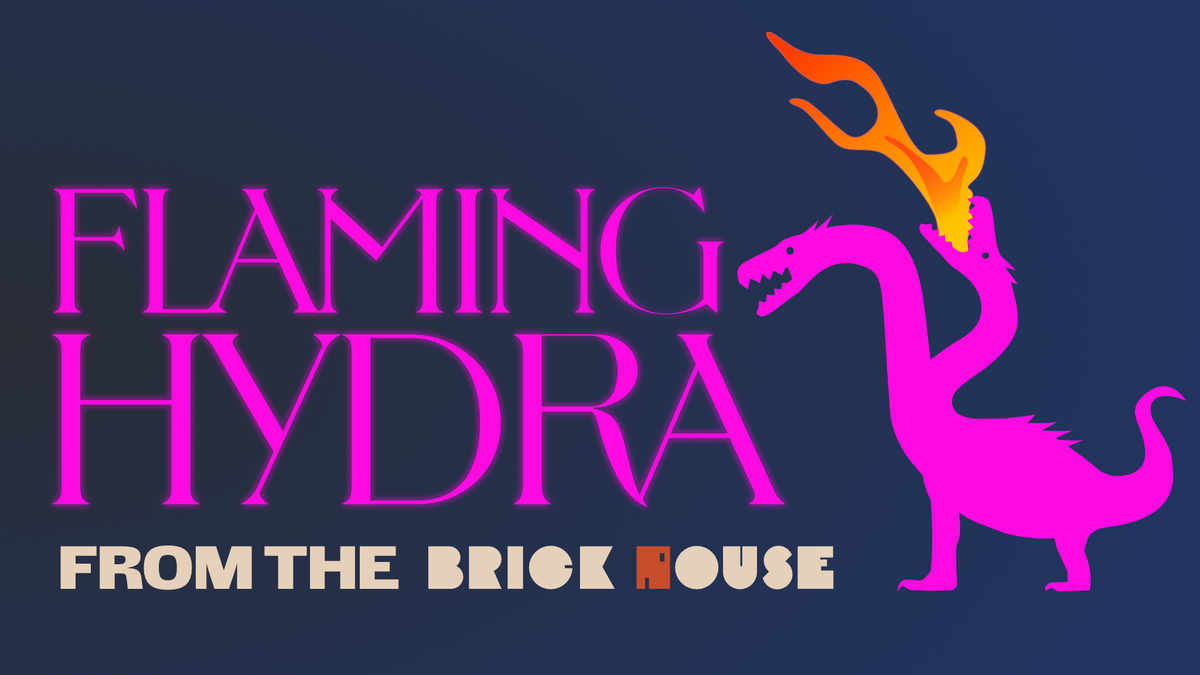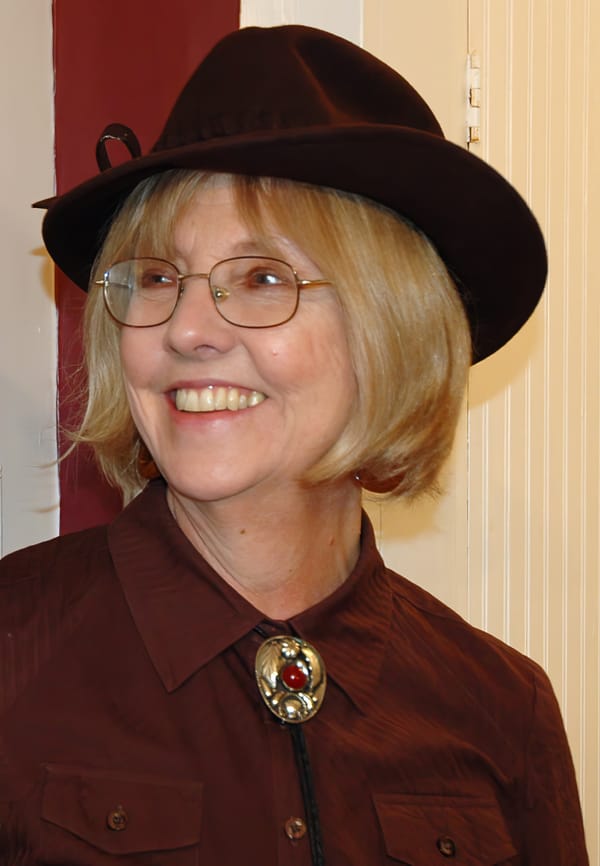“It Has To Be True” — A Conversation with Maria Bustillos of Flaming Hydra

I don’t know how I first heard about Flaming Hydra, a website that posts (usually) two pieces by authors or illustrators each weekday — usually nonfiction writing, but not exclusively — but it probably had something to do with the fact that a lot of my favorite writers were involved from the inception. There’s Tom Scocca, formerly of Gawker and the author of the formative (for me) “On Smarm”; fellow Gawker alum, the simplicity-over-stylishness work of Hamilton Nolan; the incredibly astute Osita Nwanevu destined known for political writing and his musings on…fish; heavy metal and labor beat reporter Kim Kelly; chronicler of all things tacky, Rax King; and on and on.
I had to learn how they pulled this off (and how well, in fact, it was going), and the editor of Flaming Hydra, Maria Bustillos, graciously offered to speak about the process. Bustillos has written for so many publications — The New Yorker, The New York Times, The Awl, The Nation, the Columbia Journalism Review — and this strong work alongside her ongoing battle to support the Internet Archive speaks to her commitment not just to the free press per se, but also to the struggle to maintain a readable, free internet instead of the dead or zombie varieties (quick aside: if it hadn’t been for the Wayback Machine, I would have lost most of the work I wrote online and wouldn’t have been able to compile my book Chalk Diary. Back that stuff up, or even print it out, people!).
The creation of the website involved more segues and was more complicated than I expected (and involved crypto!), but so it goes. I believe I understand how we can do this here — by taking the advice and learning from the experiences of a group of talented writers who have created a collaborative and collective vision of a truly unique and wonderful publication.
We began by discussing what so many visitors to our city associate with us, possibly more than the University of Texas, bats or the state government combined — breakfast tacos. “It’s a deranged situation,” she says of Scotland, where she is currently staying. “The shortage of breakfast tacos in this burg, let me tell ya.” I made a quip about haggis tacos, and learned this was not a hypothetical, but actually true. “They freakin’ have haggis tacos here, I’m not kidding.”
What I wanted to ask Maria about in addition to tacos was her involvement in Flaming Hydra and in a network of other projects and websites, whose connection to one another I did not yet understand. We began at the beginning, with a website called Civil, and we ended up segueing into topics including cryptocurrency, the end of Gawker, and the possible future of collaborative journalism.
The story begins with the lawsuit that would end Gawker, on which Bustillos reported and which, at the time, was full of murky and conflicting accounts as to why this all was happening. She tells me: “We didn’t know for weeks that Peter Thiel had funded the Hulk Hogan lawsuit against Gawker. What we’re really looking at was one thin-skinned gazillionaire who was willing to spend millions and millions of dollars to shut up independent journalists who were saying things that he did not like. It was said to have been pretty common knowledge, that Thiel was gay, in Silicon Valley. A lot of journalists covering the story thought the motivation elsewhere. I mean… Gawker and Valleywag had been relentlessly mocking him all the time, and he was able to quiet that.”
The following year, Bustillos was approached to help create a new platform called Civil. They said, “We’re trying to start a blockchain-based publishing platform,’ and I’m like, “Hell yes, sit down, let me tell you exactly what we’re going to do.’ Ethereum had had this huge ramp-up, and they were able to fund Popula, and a number of other publications. But it failed, Civil, because the regulatory environment became more and more onerous as the SEC and other agencies began to demand regulations; it was chaotic. People had put millions into these businesses, and from one week to the next there was no clarity with respect to whether your token would legally be considered a security, things like this. Because the industry was so new. That uncertainty is essentially what caused the crypto crash of 2018-19.
So the money ran out for Civil in 2019, but they’d launched all these publications, several of which are still going, by the way, particularly the ones that went the nonprofit route. The Colorado Sun, Block Club Chicago, Documented in New York — they’re thriving, really good publications.”
Bustillos was more interested in creating a new kind of publication. “My aim has been to try to build new kinds of cooperative publishing structures.” Speaking with a lawyer friend and a cartoonist named Trevor Alixopulos, Bustillos and a few other members of what would become the Brick House brain trust began researching how to create a “a cooperatively-owned publishing platform.” To pay for it all, Bustillos and her team raised a Kickstarter crowdfunder of about $90 thousand. “It was very helpful that I got interviewed by Ben Smith at The New York Times. Basically we were just sort of salvaging the original idea, and maintaining all the resources that we could.” The Brick House was born.
The group began by publishing nine different sites under a single cooperative umbrella. But when fundraising proved challenging, after about a year, they changed course. Instead of a suite of publications, they’d concentrate their efforts on just one; instead of a small team of writers, they would invite dozens of colleagues to contribute once a month to that single publication. They called it Flaming Hydra, and launched on January 30, 2024.
Of those people, writer David Roth was enthusiastic about joining up (“He’s got really good instincts, and he’s a genius, and he’s got a big following, and he’s an old friend and we wrote together at the Awl”) as was Hamilton Nolan (“Hamilton Nolan wrote a piece on his own blog saying that cooperatives were the future, or something like that. and I’m like, ‘Well, I have a cooperative,’), Harry Siegel and more. “We went on Kickstarter and we raised some money and then we started it,” said Bustillos. “And it’s actually great. I love it. It’s going incredibly well. It’s beautiful and fun to work on, and I feel like we’re kind of getting the word out. So that is the story.”
As of this writing, Flaming Hydra has sixty-four contributors, and supporters of the publication can pay in one big installment for the year or monthly to access the website. Writers who file in each month are paid an equal share of subscription proceeds brought during that month. “If you didn’t file in that month, you don’t get your share,” says Bustillos.
Journalists are notoriously underpaid, and I was curious how much exactly this once-a-month contribution was netting each writer: several hundred per month, Bustillos says, and a growing amount. “More than you’d make per word writing freelance at a lot of places.” This would have been true twenty years ago, and I shudder at what freelance journalists are now being paid in a world of Chat GPT and sports coverage that appears to have been written by orcas, translated into Vietnamese and then finally into English. Unless someone has some surprising news for me in a secretly lucrative field of publishing, I don’t expect to hear anything too positive for writer rates outside of organizations like this one.
My final question was one spurred by anxiety about Gawker’s destruction. That website’s decision to run a story about Hulk Hogan having sex with Bubba the Love Sponge’s wife (this sentence was difficult to write) — including posting the video of the act in question — was an entirely self-inflicted wound and Peter Thiel was ready to strike at any weak point. I wondered aloud if another “thin-skinned gazillionaire” could tank Flaming Hydra, or any other worker-owned publication that did not have the backing of seemingly-limitless dark money.
“The truth protects you,” she told me. “And we’re not really running a sort of muck-raking operation, in any way. You need to know that you’re doing the right thing, that you’re telling the truth. That’s it. And when you write something, and you’ve been at it for a long time, like we all have — like every single word has a meaning, and you have to be able to justify it and understand the implications of what you’re publishing. And the editors look at it, and we’re like, ‘Is it justifiable? Is it true? Is it worth saying — is it worth the attention of a reader?’ And in order for something to be worth the attention of a reader, it has to be true.”
As if reading my mind, Bustillos began speaking about our own local variety of self-absorbed, upper-crust clown. “Look at what’s happened to Elon Musk! He’s the richest guy ever, but every single time he opens his mouth— his foot, deeper down his own throat it goes… what you say still has to make sense in the real world.”




